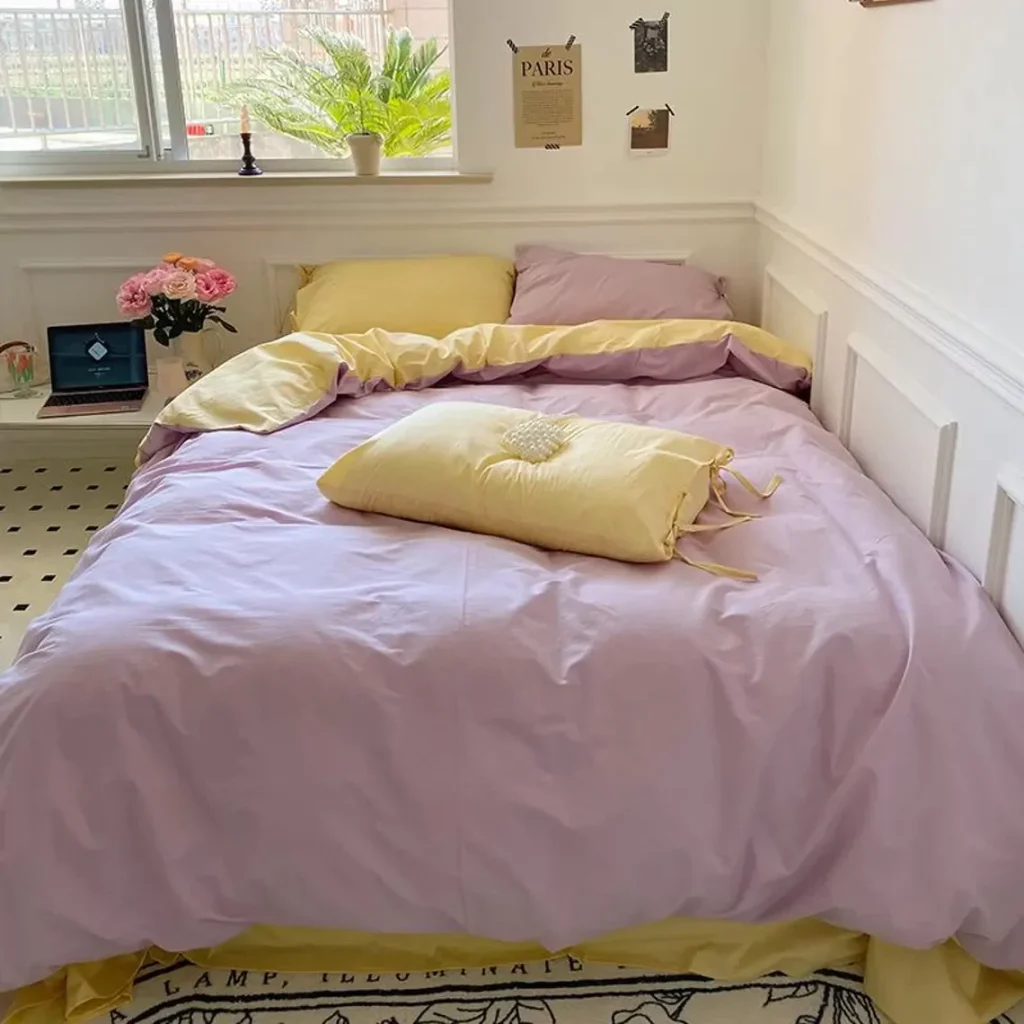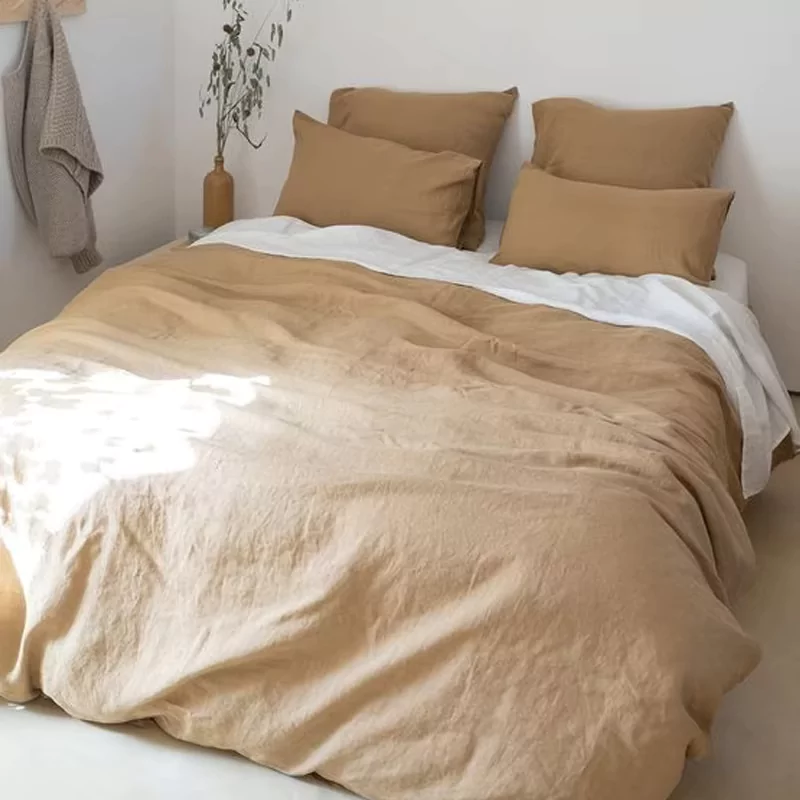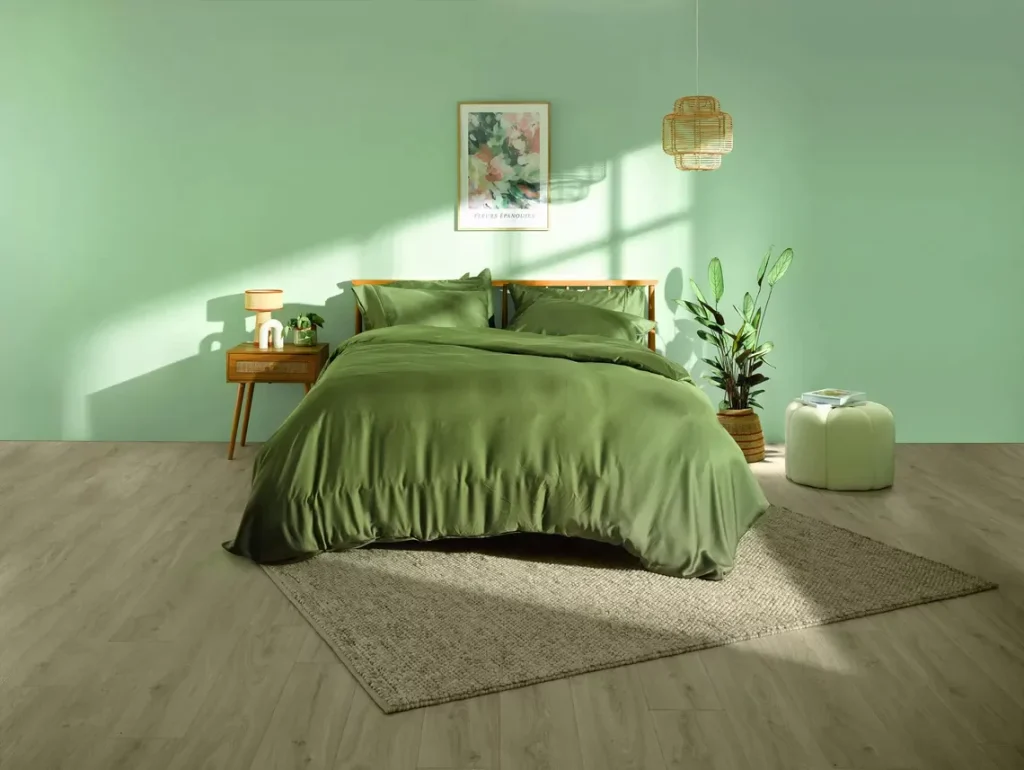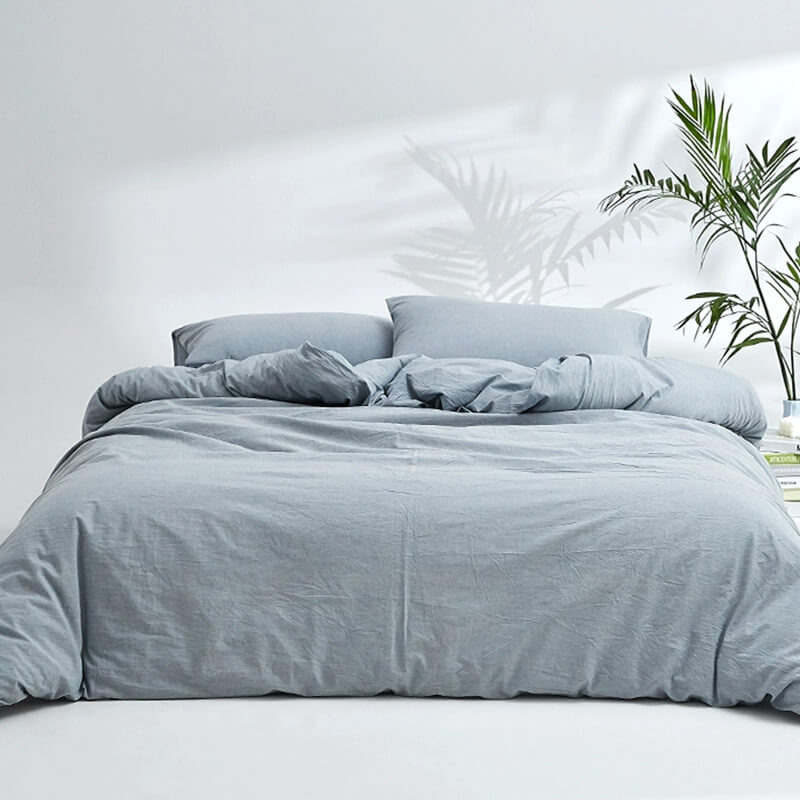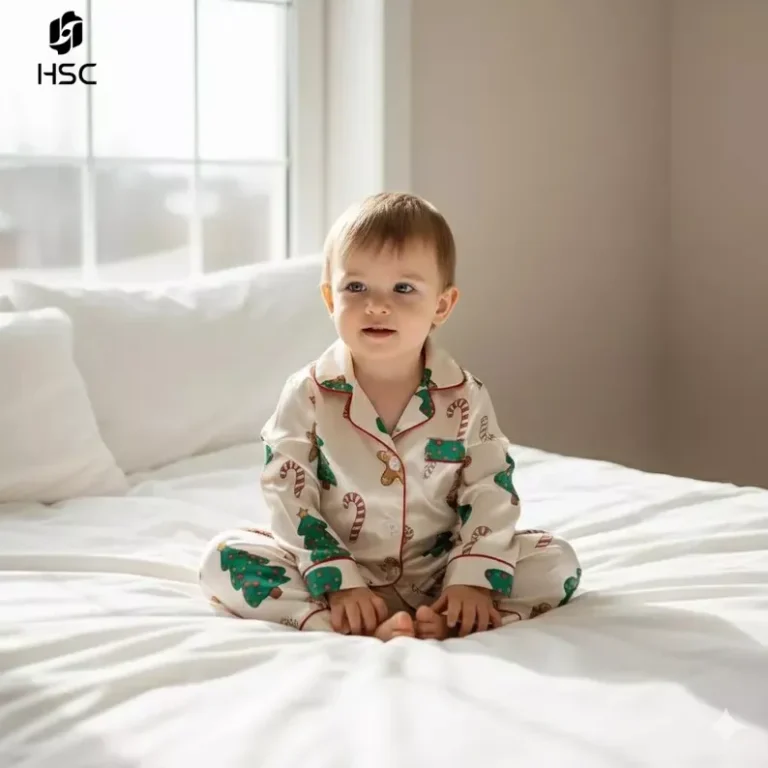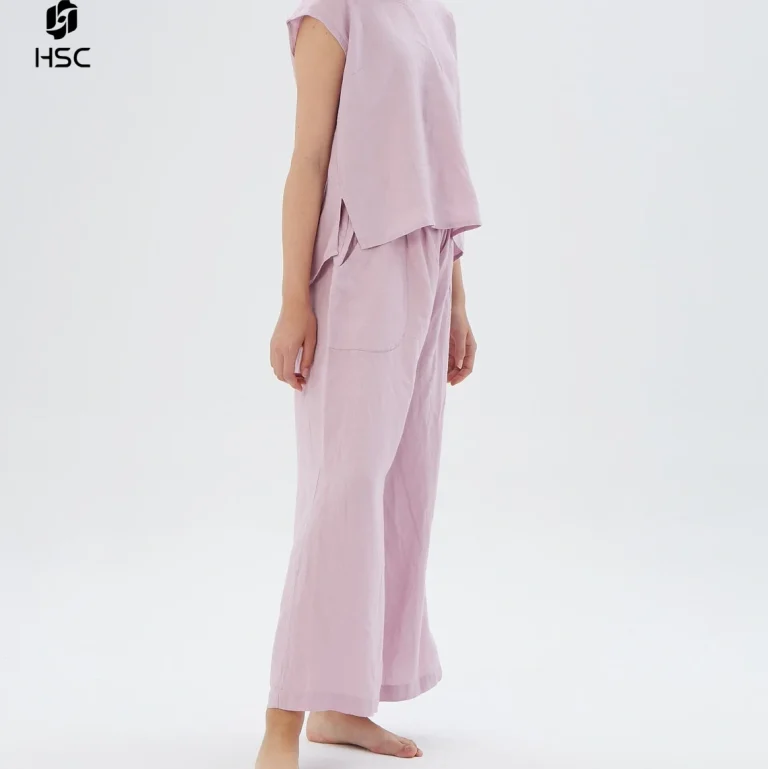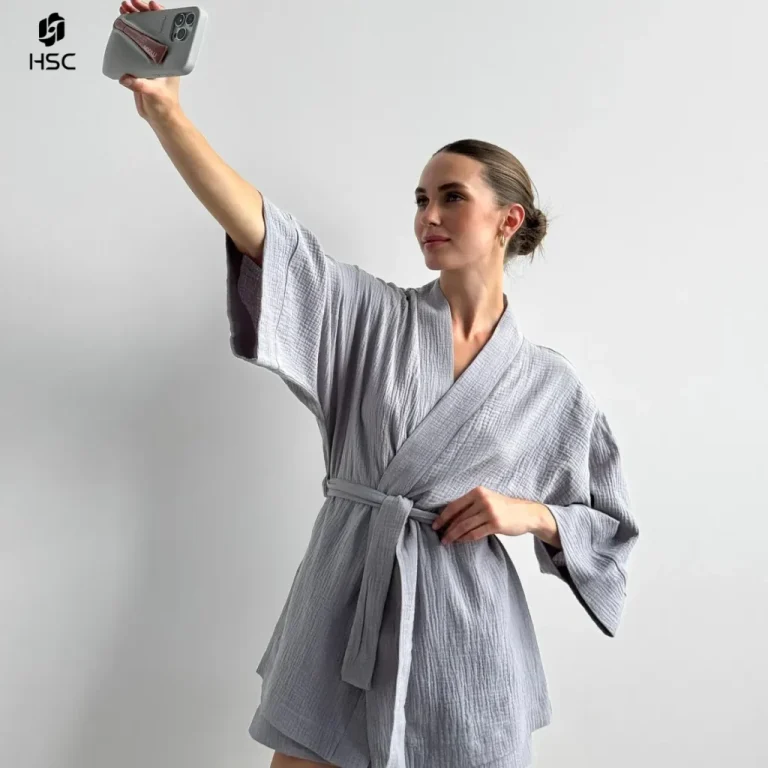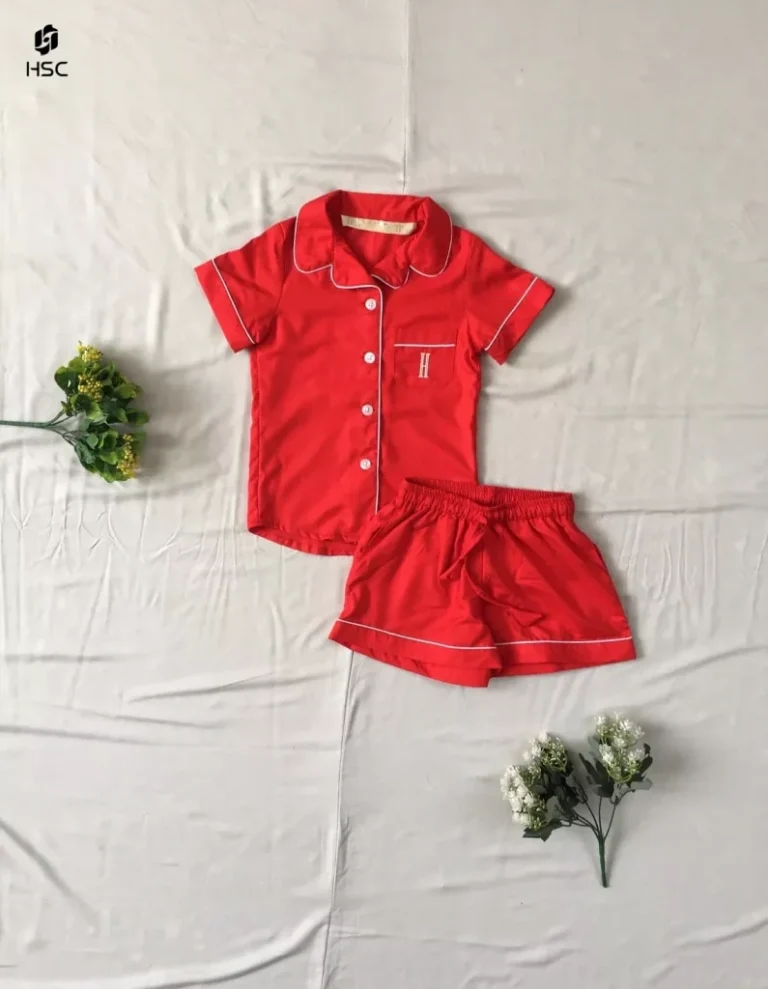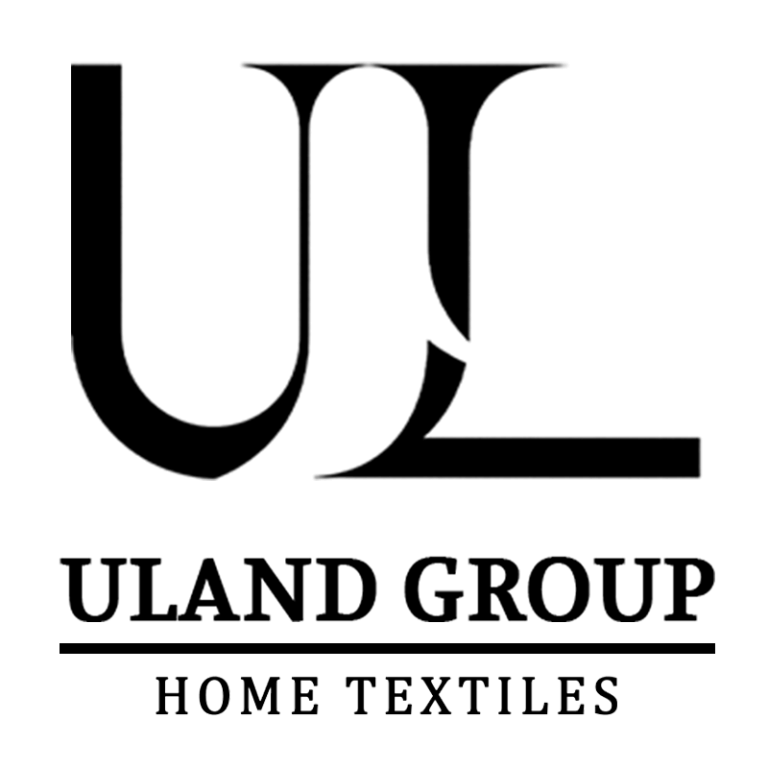Sleep is a daily routine that takes up a big part of life. The type of sheets you lie on shapes how well you rest and how you feel in the morning. Sheets are more than decoration. They decide if your nights feel cool or sweaty, soft or scratchy, inviting or frustrating. Small things, like how the fabric touches your skin or how it reacts after washing, matter more than you think. One company that puts effort into this is HSC. They are based in China and produce bedding with real care, focusing on safe fabrics, strict checks, and styles that fit both homes and hotels. Their collections cover French linen, bamboo lyocell, cotton, and hotel-style sets. The work they put in is not only about selling items. It’s also about making sure you rest better.
What Role Does Fabric Material Play in Bed Sheet Selection?
The first thing most people notice in sheets is the fabric. Material decides texture, warmth, breathability, and lifespan.
Linen fabric for natural comfort and durability
Linen feels airy, cool, and a little rough at first, though it softens over time. It’s long-lasting and handles warm nights well. The French Fabric Bed Linen Sheets are a good example. They keep you from feeling sticky when the room is humid. Some say linen even has a calming, relaxed look that feels more natural in a bedroom.
Bamboo lyocell for eco-friendly softness
Bamboo lyocell is silky without the hassle of silk care. It’s smooth, naturally clean, and kind to sensitive skin. The Ecofriendly Organic Bamboo Lyocell Bedsheets are light, cool, and help stop overheating. This type of sheet works especially well in hot summers or for people who sweat more at night.
Cotton for classic comfort and versatility
Cotton is simple, common, and practical. It can be used in all seasons. It’s soft yet firm, and easy to wash many times. The Eco-friendly Organic Stonewashed Cotton Bedding has a slightly wrinkled look that feels relaxed. Unlike cheaper cotton, it does not turn stiff after washing. It keeps its comfort for years.
How Important Is Thread Count and Weave?
Many buyers pay too much attention to thread count. Numbers matter, but weave is just as important.
Thread count indicating smoothness and density
Sheets with 200 to 300 thread count are breathable and comfortable. They work well for daily use. Around 400 to 600, the fabric feels smoother, like hotel bedding. Anything higher can feel heavy or trap heat, so bigger numbers are not always better.
Weave type affecting breathability and texture
Percale weave feels crisp, like a pressed cotton shirt. Sateen is smoother and shinier, with more drape. Each has fans. Some like the fresh, cool touch of percale. Others prefer the warm, soft flow of sateen.
Quality standards and custom sizing
It’s smart to pick sheets tested for safety, such as those carrying OEKO-TEX® labels. This means no harmful chemicals. Some makers also offer custom sizes for mattresses that don’t match the usual standards. That flexibility saves frustration when fitting sheets.
Why Should You Consider Breathability and Temperature Regulation?
Comfort is not only about softness. If sheets don’t let air flow, nights become restless.
Linen regulating body temperature
Linen helps balance heat. It keeps you cool in summer but does not feel too thin in winter. That makes it a steady choice year-round.
Bamboo fiber offering moisture-wicking and coolness
Bamboo has tiny gaps in the fibers. These move sweat away, so the fabric feels cooler and fresher. People who wake up damp often find bamboo sheets helpful.
Cotton balancing year-round usability
Cotton sits in the middle ground. It’s not the coolest, not the warmest, but works in all weather. Families often keep cotton sets as everyday basics because they are easy to wash and reuse.
What Role Does Design and Aesthetic Play?
Sheets affect the mood of a room as much as curtains or paint. A bed takes up a lot of space, so its cover stands out.
Color and style complementing bedroom décor
Soft shades can calm the space. Bright colors or patterns bring energy. Having many options means you can match with walls, rugs, or even lamps.
Luxury appeal with hotel-grade bedding sets
Hotels invest in better sheets for a reason. Heavier cotton, careful stitching, and smooth finish give a restful feel. The Customized Luxury Hotel Bedding Set captures that touch. You can choose the right size for your own bed and bring the same comfort home.
Personal touches with embroidery or detail
Some people like initials, stitched edges, or different hems. These don’t change how the sheet feels, but they make the bed look personal. Small touches can lift a guest room or make a gift special.
How Do Durability and Maintenance Affect Long-Term Value?
Sheets go through constant use and weekly washing. If the fabric is weak, it wears out fast.
Linen improving with every wash
Linen softens each time it’s cleaned. It becomes more relaxed, flexible, and even prettier with age. Few fabrics improve like that.
Bamboo needing gentle care but lasting softness
Bamboo lyocell needs mild soap and cooler washes. With care, it keeps its silk-like feel for years. Some people treat it as an investment because it lasts if handled gently.
Cotton easy to wash and long-lasting
Cotton is forgiving. It can handle warm water and even rougher cycles. That makes it handy for busy households and hotels.
Why Is Brand Reliability and Customer Service Essential?
Even the best material won’t matter if orders arrive late or service is poor. Trust matters when buying bedding.
Global trust and wide client base
A maker that serves thousands across many countries shows consistency. People come back because they receive what they expect.
Verified checks and quick replies
Third-party checks like SGS testing add safety. Fast customer replies, often within hours, help solve problems before they grow.
Support after purchase and flexible shipping
Guidance on care, updates on new designs, and shipping choices add value. Options from express to sea freight make it easier to plan deliveries.
FAQ
Q1: What is the best fabric for hot sleepers?
A: Linen and bamboo are both strong picks. Linen stays cool, and bamboo moves sweat away.
Q2: How often should sheets be changed out?
A: Usually every 2–3 years. With good fabric and care, some last longer.
Q3: Are eco-friendly sheets worth buying?
A: Yes. They avoid harsh chemicals, help sensitive skin, and lower impact on the earth.
We are a group company integrating manufacturing and trade – ULAND GROUP. Our subsidiaries include HSC, Liaocheng Shanlian Textile Co., Ltd., zhongfei, and DDL.

